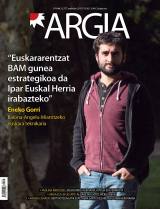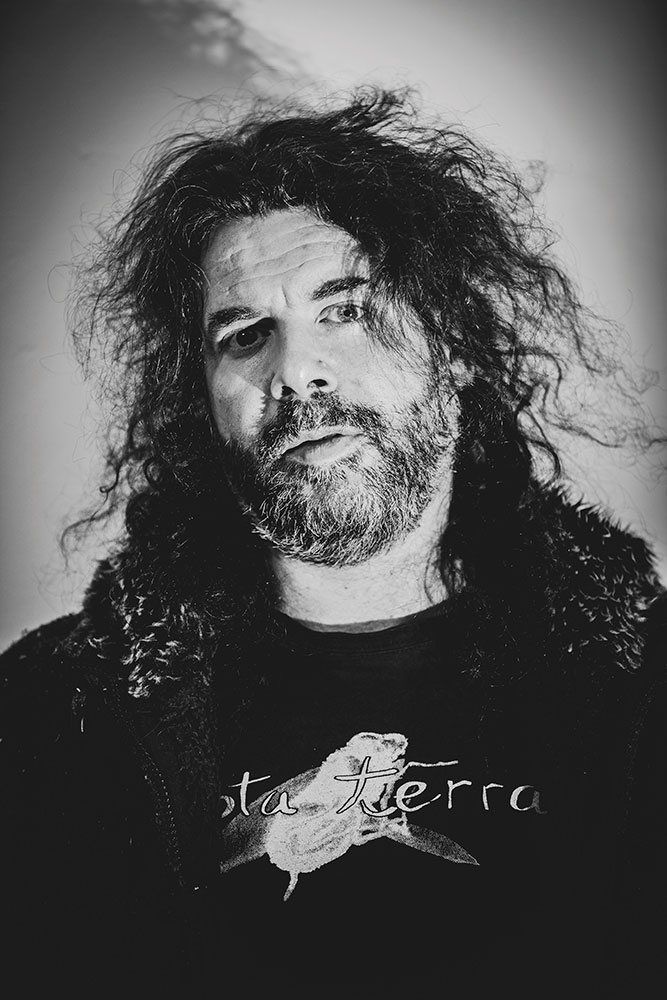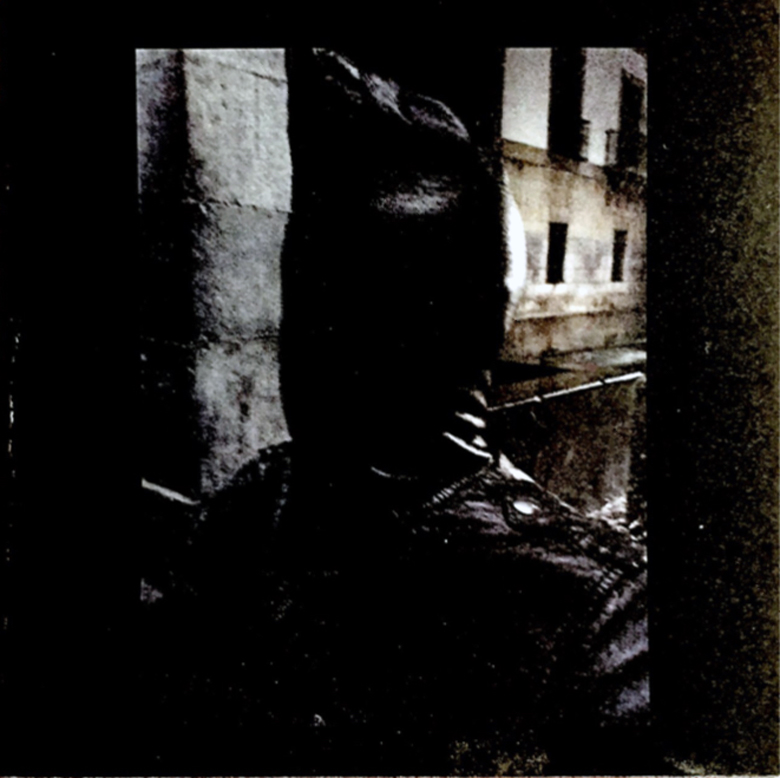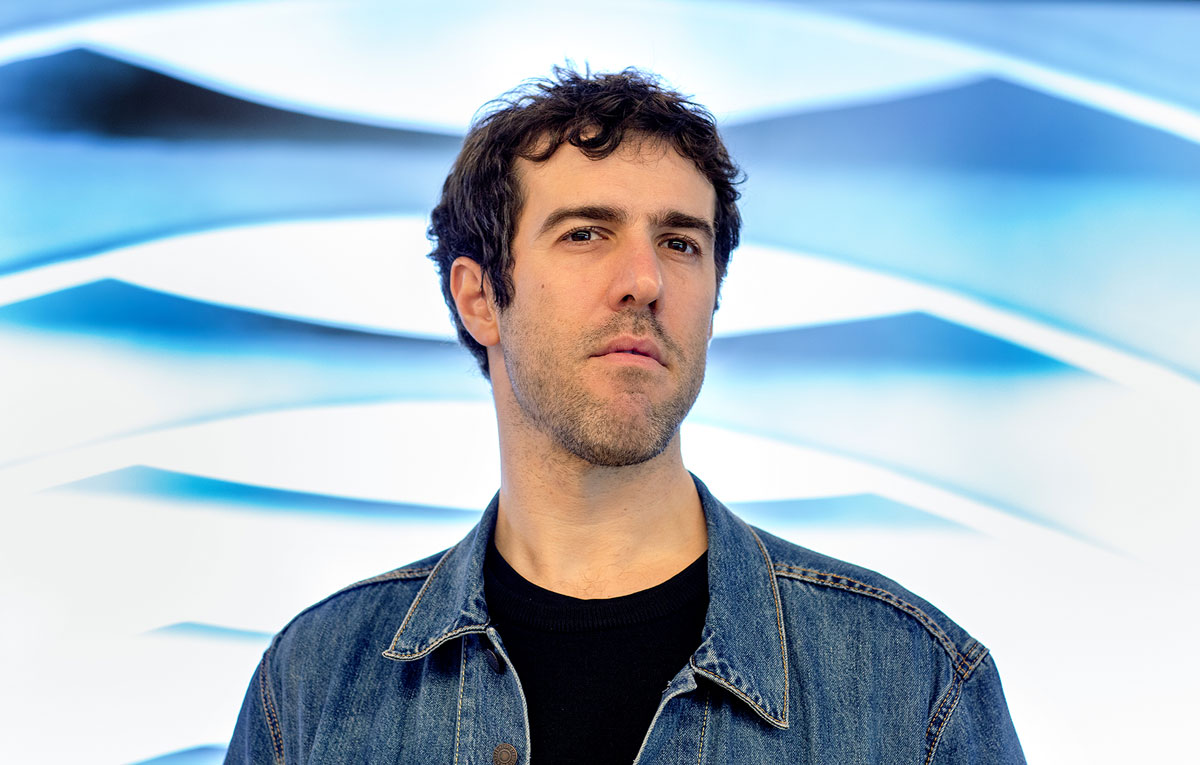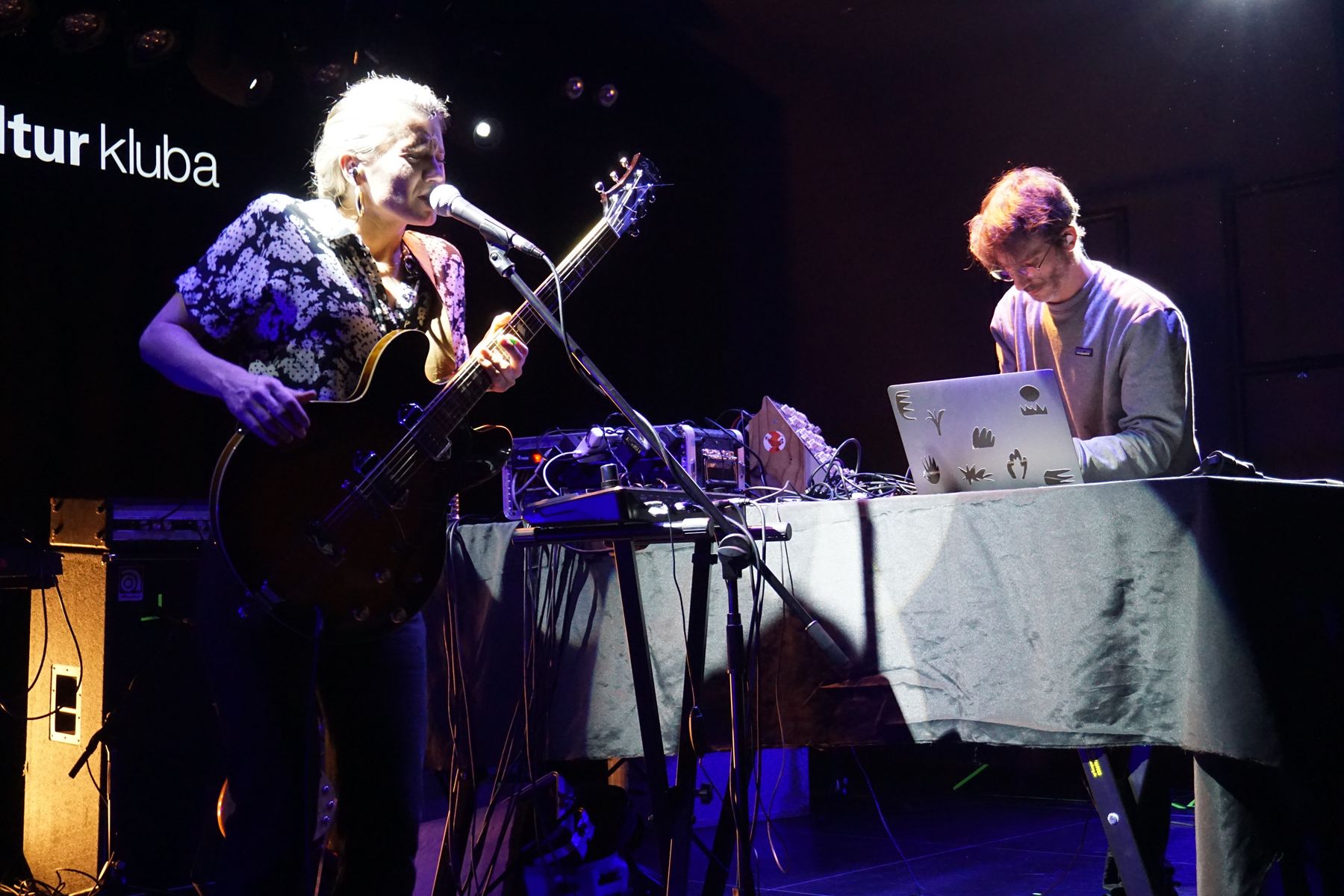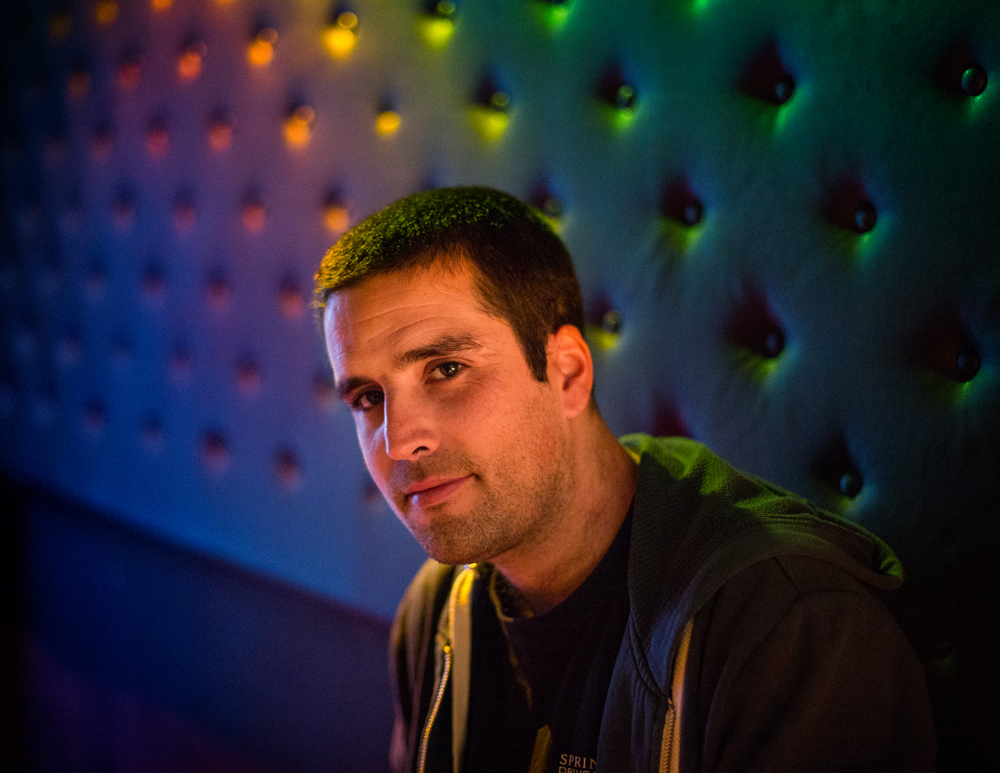"Making a song is bringing all the music of the world together."
- Just over a year ago, Izaskun González decided that it was time to name the hours they spent alone in front of the computer and to start a project. In this way he created Rrucculla and in a short time he has given much to say. He is currently immersed in his new album.
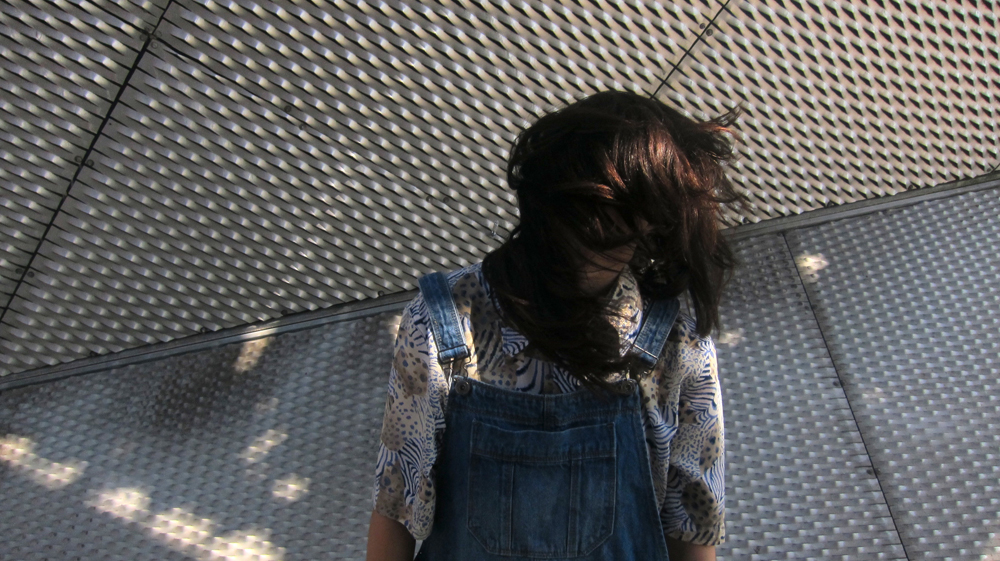
Izaskun González (Barakaldo, 1994) bears the brand of the generation. “I’ve grown up on Youtube. I'm able to go in a few seconds of smooth to grime jazz. Being so my day to day, it’s normal for my music to be the same.” Since it started in the stages under the name of Rrucculla just over a year ago and since then it has composed a series of songs, all created from the hybridization of very different rhythms and sounds, with echoes of free-jazz, abstract hip hop or pop. However, they are not simply samplers’ “cutting pegadgets.” “In my songs everything is where it should be. Everything makes sense.” In this interview, we try to transfer this meaning to the letters.
When did you take on music?
At home, we've always heard music. My parents put me on everything: Latin jazz, rock, Phil Collins' albums… At nine years old, I got the discman, and I spent hours listening to him. My brother started learning the guitar, so I picked the drums and studied for seven years. In musical language, though, I wasn't too skilled. I didn't learn solfeo, I got really bored with those things. In battery classes, I never did domestic work. I'm not very responsible for these things. I've always been studying on my own the songs I was interested in.
“I don’t know why my music is said to be complex. Is life easy?”
Many musicians complain that music classes should help stimulate creation rather than just playing sheet music.
That's right. After a few years studying battery, I wanted to go into the conservatory. I wanted to learn marimbas and other percussions. But I soon realized that it was a disciplined and serious teaching, that it was going to undermine my own creativity. I wanted to get to know myself better, do something that came out of me, and not learn how to touch what gets on a paper. I know a number of people who have studied battery in the conservatory and don't know what to play if you don't put a paper in front of them. They don't know how to improvise. I am not interested in that.
Create songs from colors and shapes.
The first ones started from drumbeat rhythms, but as I compose I get bored with myself, I started creating a melody or a sound. And yes, because I don't know musical language, I'm helped by paintings, artwork, people, images and shapes. They help me make the story of a song.
Can you specify this? What do colors, shapes, and so on help you in? To make the story of a song?
I can't compose in the bedroom and alone. I create the songs in my parents' living room, and there, at the height of the couch, are some images of Kandinski. I created a jazz record from those images. I follow this custom when I compose: the circle is a bass drum, the square is the battery box. With colors, on the other hand, I have synesthesia. I don't dare to say that red is a line from the synth. It depends on each one.
A year ago you started giving concerts, when you came to the end of the Villa de Bilbao competition. Why did you decide to take that leap?
I don't know. I've always thought I wasn't doing anything extraordinary. But I didn't want to be any of those artists who just do the filling work. I signed up, they elected me, and to my surprise, everything that has happened has happened.
Before that, you played the battery in various rock groups. When and why did you start experimenting with the computer?
I started jumping on my computer at the age of sixteen. I already heard quite complex music, like the Mars Volta. I wanted to know how the electronic sounds they used were produced. I made some attempts with groups back then, testing with the computer while I was playing the battery, but it didn't work, and I went home on my own. Every afternoon I played the keyboard and the battery, two hands away. I started making loops, then I delved into production, into contemporary electronics issues, and so on to this day.

You are completely self-taught.
Yes. Until a year and a half ago, I didn't know what it was like to produce music, mastering, making mixtures, and none of that.
It's amazing what you've done in a year and a half. You’ve played a lot live, also at great festivals: BBK Live, Primavera Sound and Low Festival, for example.
Imagine evolution: before I didn't even talk about my music with my closest friends. Before the Villa de Bilbao competition, nobody knew I was making music. It was hard for me to take action at my first concerts, as my songs have many layers, as I’ve recorded some of them. I couldn't play 100 percent live. Now I have everything under control and I do it willingly. Playing perfectly was nice, at the perfect time, around three o'clock in the morning. At BBK, however, I was not at ease. It's OK to invite novice musicians and all of that, but we can't all play at five in the afternoon. There was an impressive sun, and I used an Ableton Push. There was no way to see the lights and I had to adapt the whole set. It was chaotic. I didn't feel comfortable.
He says he wants to make songs that are uncomfortable and hard to predict. How do you do that?
I don't know. I know, for example, that techno makes me predictable. I like to mix with other songs, like in DJ sessions. But for me, making a song is bringing together all the music in the world. Go from a rhythm of Afrobeat to a rhythm of grime. Break the song every four bars. You don't predict it, and that surprise surprises you.
Why do you consider the foreseeable techno?
Because it's a constant drum at the rate of black people. You can feel it differently, but for me it's not special to compose that. I wouldn't enjoy it. I need more elements, more emotion inside the song. I've read that techno tempo and heart beats per minute are similar, and that's why people like to go to seven-hour sessions. I can enjoy a little, but I couldn't listen to it for seven hours in a row.
Your songs are slowly digestible. They ask for active hearing.
I don't know why my music is said to be complex. Is life easy? My songs are like any day. There are many things that happen one day, for a moment you are aggressive, and little laughing, and… there is nothing complicated there.
“As I don’t know the musical language, paintings, artworks, people, images and shapes help me. They help me make the story of a song.”
I wanted to say that they're not predictable, at least not every day in the supermarket, in the car, in the bar, like 90 percent of the songs people hear, of easy structure and rhythm. They ask for a little effort from those who have raised their ears in pop culture.
Yeah, that's it. I've wanted to put the pop world on the record that I'm working on now, and I swear to you, it's been the hardest thing I've ever done in my life. I'm not able to pop. I get something, but I don't like it. I think it needs something else. I understand, however, that some people find it difficult to listen.
You made a rework of the song Loca de Silvia Pérez Cruz. Or, all of a sudden, you put a piece of Aserejé in a song. What criteria do you use to decide these things?
I don't know. So I'm just happy about it. The singer is given another atmosphere by the union of two totally different worlds. On the other hand, I have always liked what Silvia Pérez Cruz does. Because it's going to be hard to collaborate, one night I downloaded Youtube Loca, I got into Abletona and started experimenting.
He talks about Ableton, he's also used Logic Pro -- doesn't electronic music have much dependency on private software?
Yes, if it exists. I, now, only use Ableton. Why am I going to pay a thousand euros for a piece of gadget, if I can have the same sound on my computer?
There are also those who build their own synthesizers…
Well, as you skip on your computer, you learn to hack programs and all that. I'm more software fond than hardware. I've always worked with the tools at my fingertips. If it wasn't for Ableton, I would surely make music with another show. There are, for example, free noise programmes.
What do you do now?
I'm trying to end the next album. It's being a hard job, because I'm looking for a sound. It's making me waste a lot of time. Sometimes it's desperate, I've lifted the barrier and I can't tell if I have to give the level. My point of view about all the music I like is what I'm doing. What I would like, what I would like to hear. I'm there. Electronics are more contemporary and unpredictable.
Finally, can you cite some contemporary artists that interest you?
In the Basque Country, I would mention Kvalvika, II (KRIS GM), Mark Luva and Delorean. Outside here, Iglooghost seems to me to be the best producer today. Lorenzo Senni is great, Sophie and Abra too.
I could write this chronicle beforehand, although the sensory experience of the nightclub is difficult to describe in a few characters. The hegemonic discourse has also prevailed in manifestations outside the cracks of official culture. The story of what happens in the... [+]
Munduko bazter ugaritan utzi du bere marka musika elektronikoko musikari eta DJ bezala; ezabaezineko lorratza da El Txef-A-rena, baina aldi batez bere alderdi hori isilarazi du, barneko musikari heterodoxoari ate-leihoak zabaltzeko. Markak filmerako egindako soinu bandatik... [+]
Lumik eman digu neguko haize eta hotzari aurre egiteko aukera. Itzal zikinak lan berria aurkezten aritu dira Orbeleko lagunekin, aretoa erdi bete erdi hutsik zutela. Bertaratu ez direnen kalterako. Zoragarria izan da.









